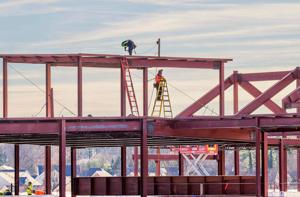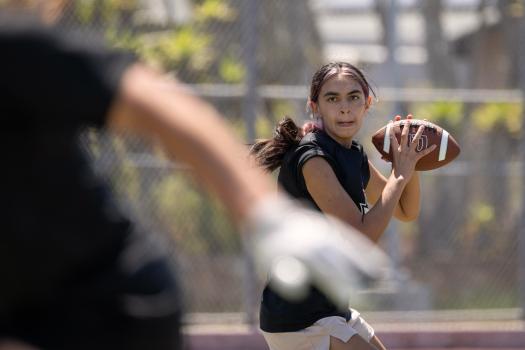URGENT UPDATE: A groundbreaking health initiative, ¡Coma, Muévase y Viva! (“Eat, Move, and Live!”), is making significant strides in improving the health of Latino families in rural Southern California. Launched by the University of California, Riverside, the program is transforming diet, fitness, and chronic disease management for low-income families, particularly in the Eastern Coachella Valley, an area facing alarming diabetes rates.
New findings confirm that the 10-week virtual program, designed specifically for Spanish-speaking participants, is yielding impressive outcomes. Participants have reported better understanding of nutrition and exercise, leading to healthier habits and improved quality of life.
The study, published in BMC Public Health, highlights the role of “promotoras,” trusted community health workers who facilitate the program. “Our findings show that programs like ¡Coma, Muévase y Viva! can improve quality of life for underserved rural Latino populations,” stated Ann Cheney, the study’s senior author and a professor at UC Riverside. By engaging promotoras in the research process, the program is tailored to meet the specific needs of participants.
Latinos represent the largest rural minority in the U.S., and they face unique challenges such as limited access to healthy food and safe exercise spaces. This program addresses these disparities directly, offering a model for culturally responsive health education. Weekly sessions cover essential topics like diabetes, nutrition, and cholesterol, featuring affordable and culturally relevant recipes alongside group workouts energized by Spanish music.
In late 2022, focus groups with 20 low-income, Spanish-speaking Latina women revealed that participants experienced weight loss, increased energy, and greater confidence in managing their health. Many shared newfound knowledge with family members, further promoting healthier lifestyles at home. These personal transformations underscore the program’s community impact.
“Our research shows the importance of culturally grounded public health programs,” added Jacqueline Moreira, the first author of the paper. “When communities lead the way, health education becomes more effective and empowering.” The use of WhatsApp and culturally relevant materials has been crucial in building trust and engagement among participants, contributing to the program’s success.
As the findings spread, the implications for public health initiatives in underserved areas are profound. Cheney emphasizes the need for programs that integrate local voices and cultural traditions, stating, “¡Coma, Muévase y Viva! provides a model for delivering accessible and sustainable health education.”
The urgency of these findings cannot be overstated. With obesity and diabetes rates soaring, programs like ¡Coma, Muévase y Viva! are essential in bridging health disparities and fostering community resilience. As the initiative continues to evolve, stakeholders and health advocates will be watching closely to see how it can serve as a blueprint for similar efforts nationwide.
For more information, refer to the study by Jacqueline Moreira et al, titled “¡Coma, Muévase y Viva!: qualitative findings from a dietary and lifestyle change intervention for Latinas in the rural desert region of Inland Southern California,” published in BMC Public Health (2025).
Stay tuned for more updates on this vital community initiative that is reshaping health outcomes for Latino families in Southern California.







